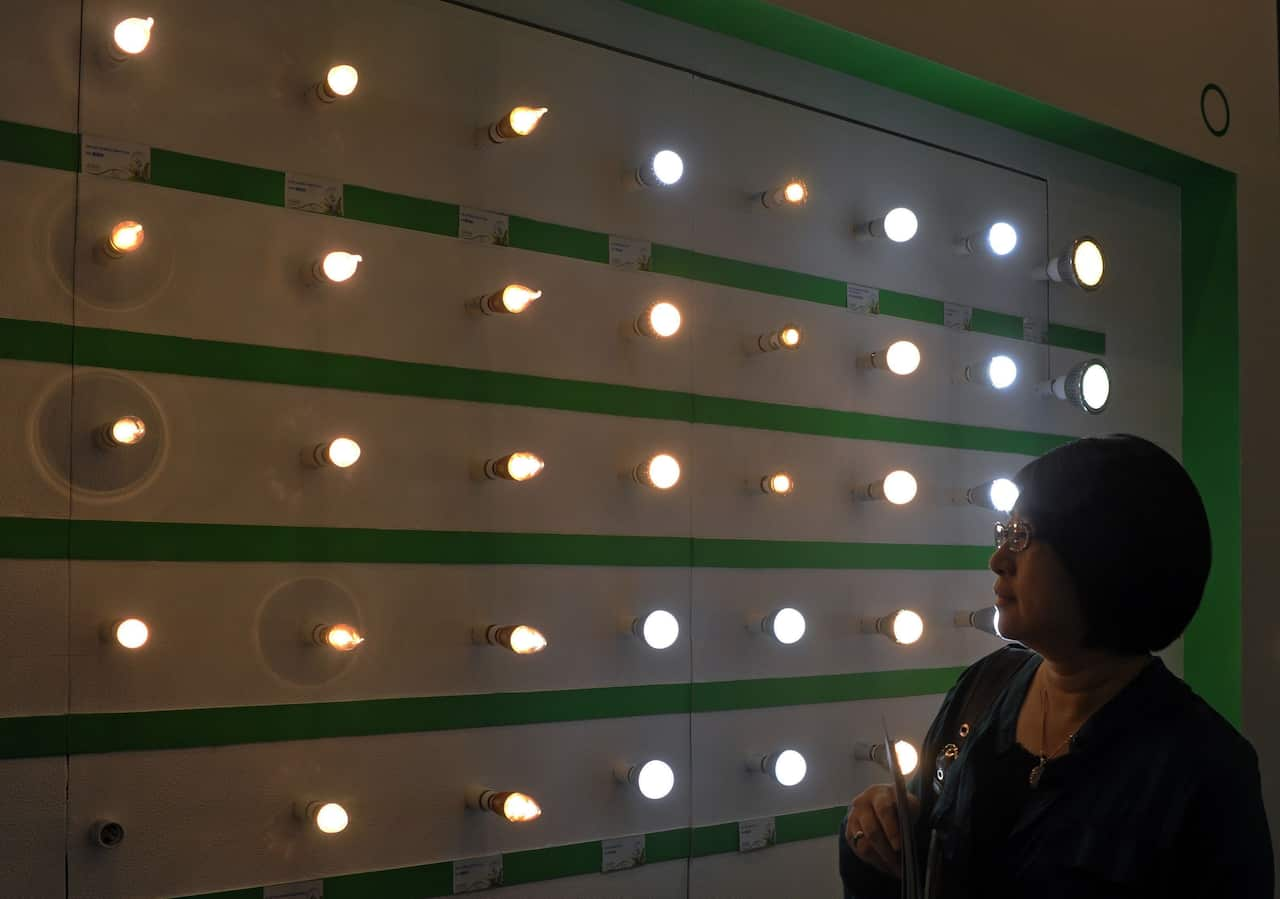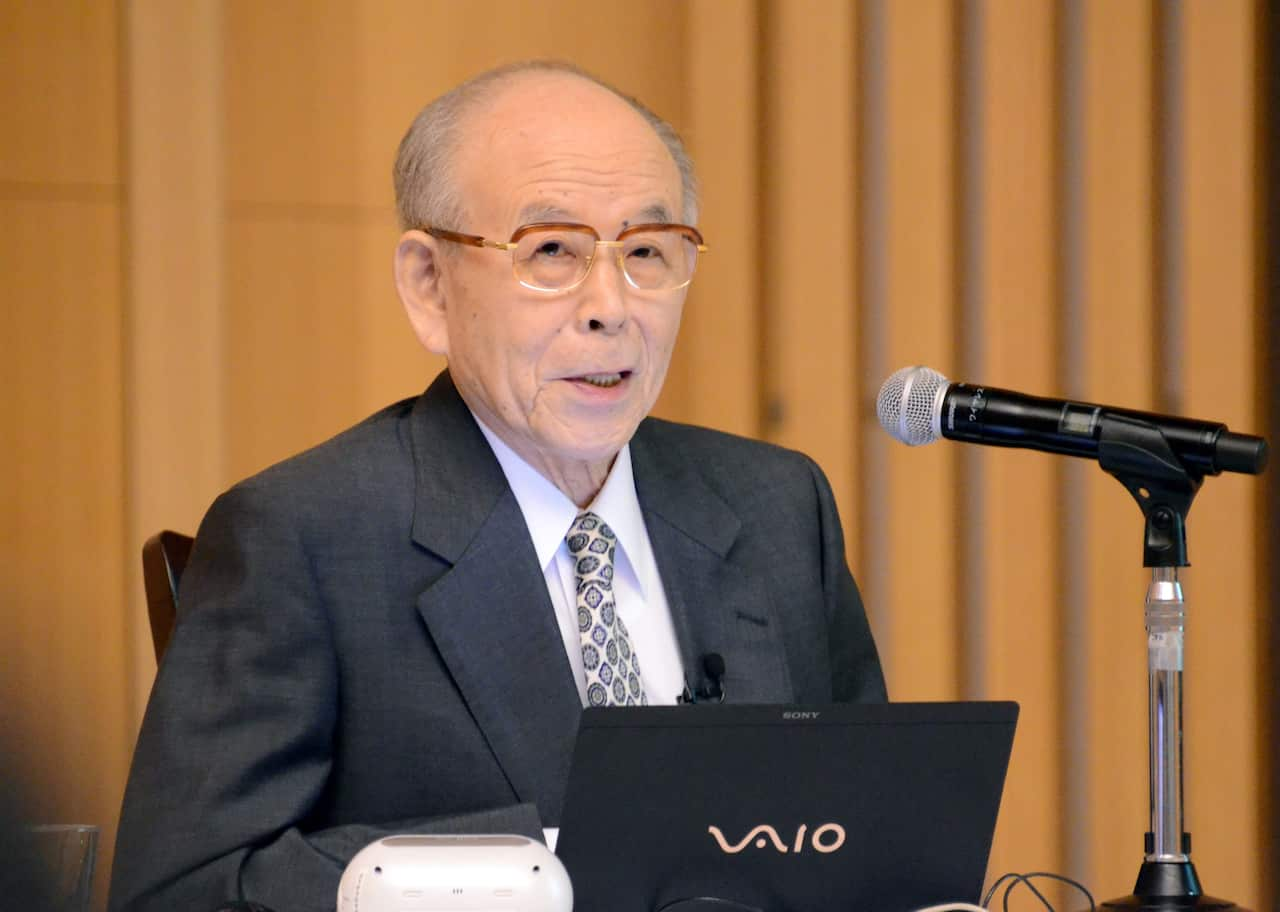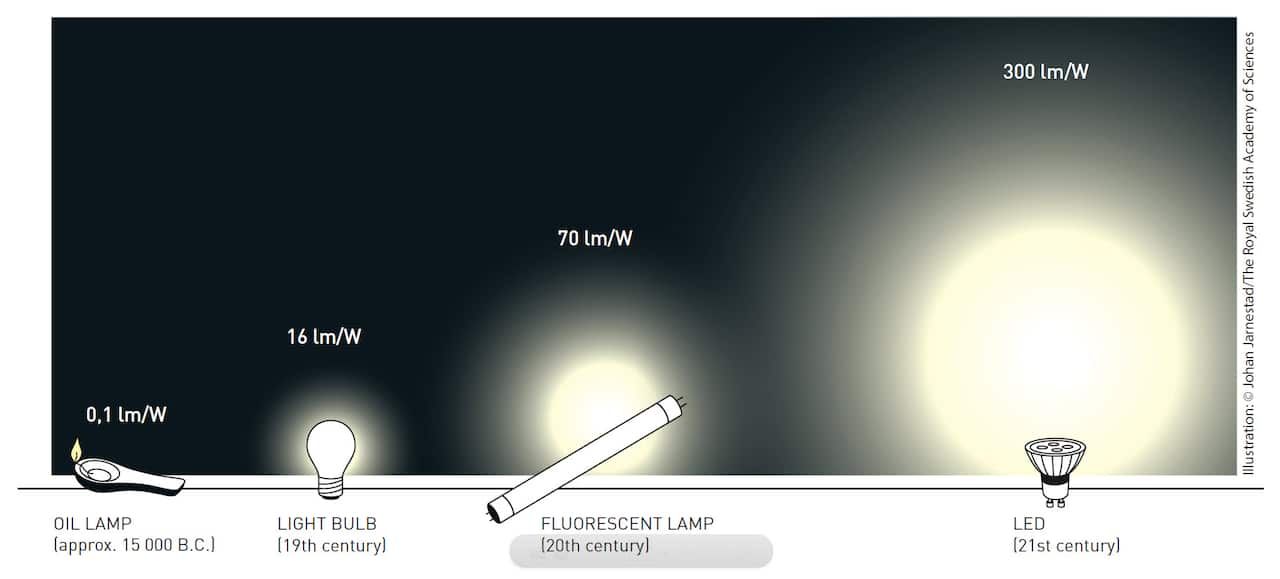Japanese scientists Isamu Akasaki and Hiroshi Amano along with Japanese-born US national Shuji Nakamura have been awarded the Nobel Prize for Physics for their work creating the blue light-emitting diode (LED).
The trio's work helped transform the lighting industry and also helped in the fight against global warming.
The new energy-efficient and environmentally friendly light source has also helped people living in poverty light their homes and contributed to the television and smartphone industries.
"I am very honored to receive the Nobel Prize," said Nakamura, a professor of materials and electrical and computer engineering at the University of California, Santa Barbara.
"It is very satisfying to see that my dream of LED lighting has become a reality."
"I hope that energy-efficient LED light bulbs will help reduce energy use and lower the cost of lighting worldwide," he added.

A visitor looking at Light Emitting Diode (LED) bulbs during a building materials fair at the World trade Center (File: SAM YEH)
Devising the blue LED was a challenge that endured for three decades, which was acknowledged by the jury, who said the trio had "succeeded where everyone else had failed".
"Their inventions were revolutionary. Incandescent light bulbs lit the 20th century. The 21st century will be lit by LED lamps," the jury added.
"With the advent of LED lamps, we now have more long-lasting and more efficient alternatives to older light sources."

85-year-old Nobel laureate Isamu Akasaki. He is a professor at Meijo University in Japan. (AAP)
Energy-efficient, environmentally friendly
The invention of blue LEDs enabled companies to create bright white light that's widely accepted by consumers.
LED lamps emit a bright white light, are long-lasting and use far less energy compared with the incandescent lightbulb pioneered by Thomas Edison in the 19th century.
LED lamps last for tens of thousands of hours and consume nearly 20 times less energy than regular lightbulbs.
Because they have very low electricity needs, they can be connected to cheap, local solar power - a benefit for the more than 1.5 billion people across the world who do not have access to the electricity grid.
The trio will share $US1.1 million in prize money. They will receive their prize at a formal ceremony in the Swedish capital Stockholm in December.

"LED lamps require less power to emit light than the older light sources. Efficiency is denoted in luminous flux (measured in lumen) per unit added power (measured in watt). (The Royal Swedish Academy of Scientists)
Share

